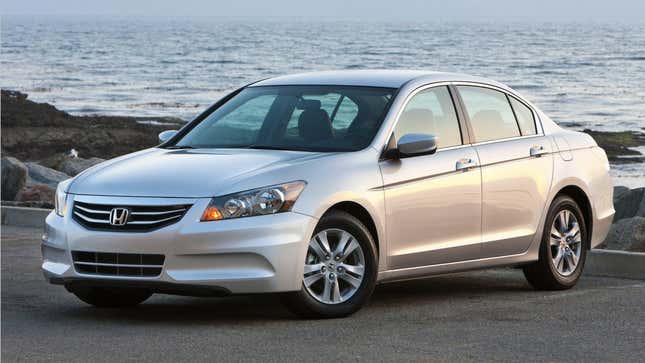
Being poor is really hard, but some Ohio State Senators don’t think it’s hard enough. Republicans dropped “assets tests” for poor working families who receive benefits through the Supplemental Nutrition Assistance Program into the state budget last week. Among the requirements to receive aid? Not owning a car valued at $7,000 or more.
The requirements don’t just touch on vehicles, and are all equally bonkers. From the Columbus Dispatch:
Ohioans who receive food assistance would have 30 days to notify the program of a change in income that was more than $500. Parents would have to cooperate “with the child support enforcement program” as a condition of eligibility. And the Ohio Department of Job and Family Services would have to “conduct an asset test for each SNAP recipient.”
The problem, Hamler-Fugitt said, is that the Senate set the total limit at $2,250.
“Families are going to have to sell their cars to keep their SNAP benefits ...,” she said. “Senior citizens who may have a modest burial insurance policy would have to liquidate that policy in order to feed themselves.”
So the first $4,650 of an Ohioan’s car’s worth wouldn’t count towards that incredibly low $2,250 limit, but over that and you’re screwed out of food benefits. Anyone with half a brain knows you need a car to get most places in this country but especially in Ohio, where much of the state is rural and has no public transit to speak of. This rule would encourage already poor people to become trapped in a cycle of owning beaters, which are often expensive to repair and constantly breaking down. In other words, it’s a way of to punish poor people for being poor, while also keeping them poor. It’s worth noting that Ohio has 13.1 percent of its residents living in poverty, according to the 2019 U.S. Census.
Let’s look at an example: Say your family was doing OK in 2010 and bought a brand new Honda Accord. You paid it off over four years, did diligent maintenance on it, and your Accord is still kicking, even with 120,000 miles on it. That reliable, paid-off car, according to Kelly Blue Book, could be worth anywhere from $6,000 to $8,000. Which is great, because now your family isn’t doing so well. You need both a reliable car to look for work and food benefits to make ends meet. These proposed asset tests would mean this hypothetical family might have to sell their paid off, mechanically sound vehicle buy something older and less reliable. They did everything right, and the second they need help, the state would cut their legs out from under them.
Now imagine someone in this family gets around using a wheelchair. Vans modified for wheelchair use are incredibly expensive and, even as well-used vehicles, hold their value incredibly well. This family could lose their only way of transporting this person in order to adequately feed themselves.
The simple fact of the matter is that a family’s situation is always subject to change. I am reminded of this article from the Washington Post written by a woman who had to take her Mercedes to the food bank during the 2008 financial crash. Her story always stuck with me as a great example of how quickly the tide can turn on people who play by the rules, do everything right and still end up needing assistance. In a country that has seen three market crashes in the last two decades plus a total economic shutdown due to a pandemic, you’d think there would be more understanding from lawmakers. Then again, nothing about this really makes sense at all.